:quality(80)/business-review.eu/wp-content/uploads/2018/10/Smalllogo_NEAN3078.jpg)
LIVE TEXT COVERAGE – DAY 2
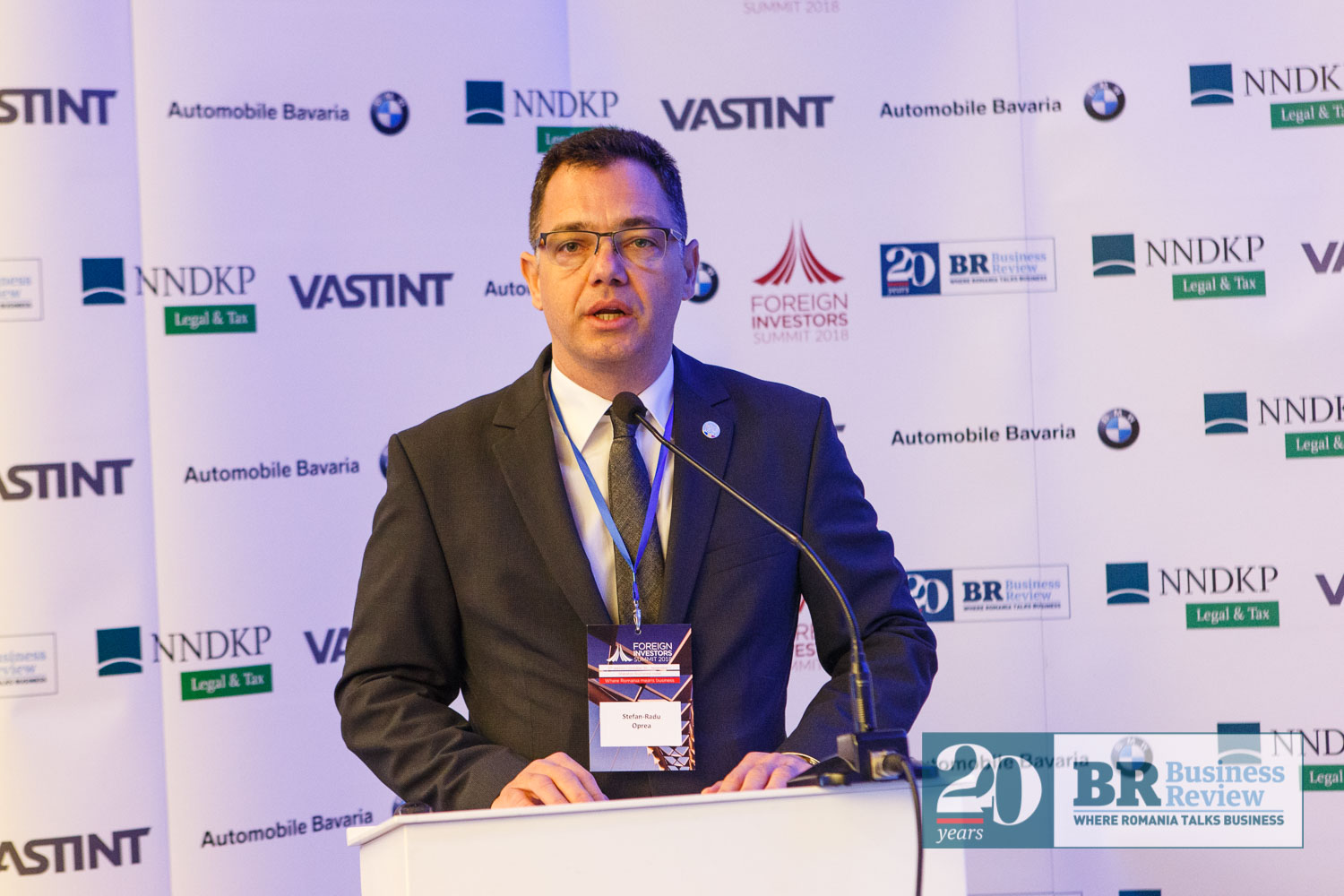
Stefan-Radu Oprea – Minister For Business, Trade and Entrepreneurship
- Romania wants to become the most business-friendly country in the Region
- The government wants to ease investments by simplifying the rules. Our ministry is a partener for businesses. We want to regain our traditional markets: Vietnam, China.
- I saw in Vietnam an association of former Vietnamese students in Romania who are very interested in keeping contact with our country,” the minister told the audience.
- Romania already has a free-trade agrerement with Japan, but the government wants such agreements with Singapore, Australia.
- Romanian companies should take profit and benefiting from this opening. This kind of opportunity doesn’t last long,” Oprea said.
- We’re trying a massive change of mentality when it comes to the state- private companies relationship. We have the law of prevention that helps businesses
Fireside Chat | A Romanian Perspective on the Three Seas Initiative. Conclusion
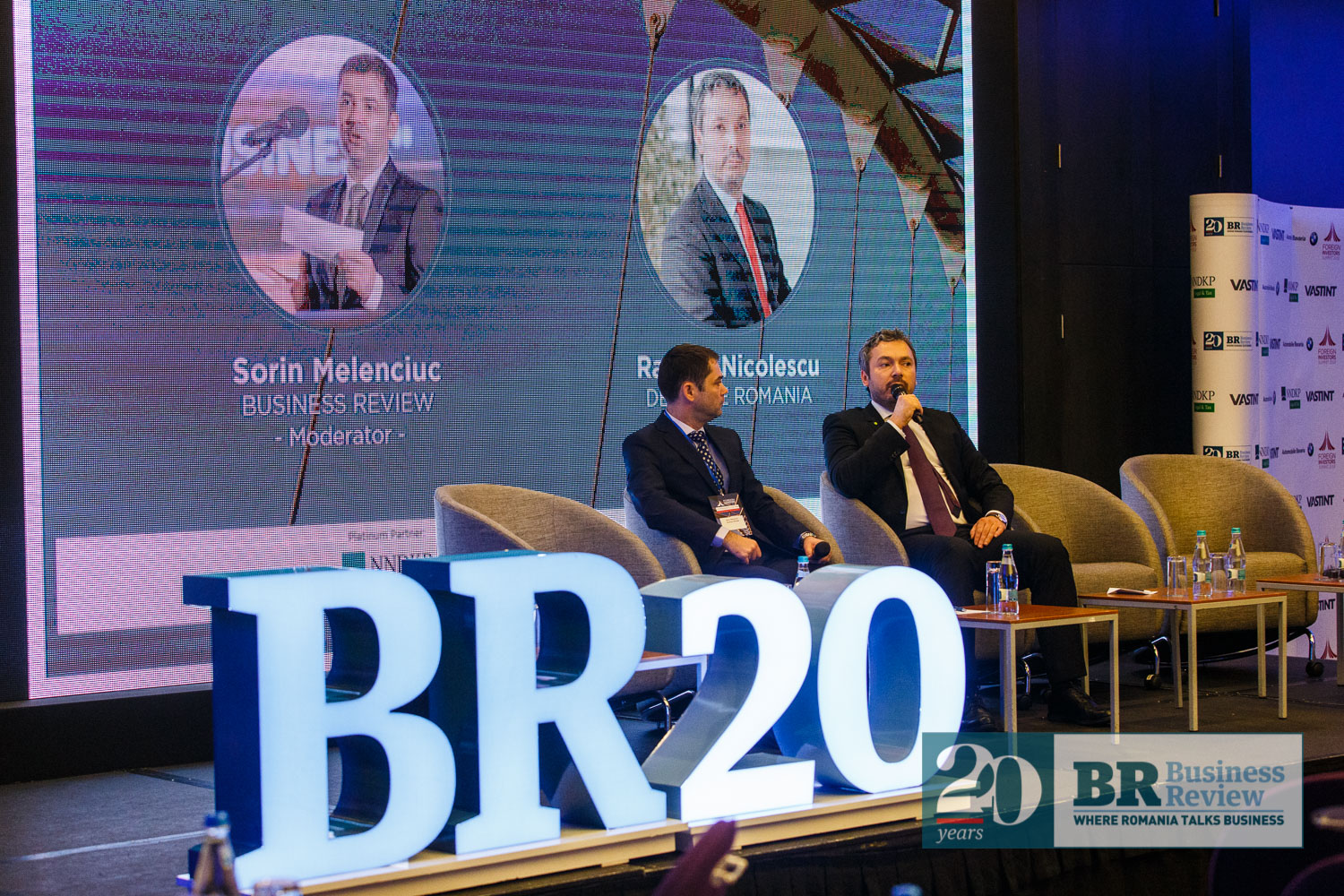
Razvan Nicolescu – Energy & Resources Industry Leader | Deloitte Consulting
- There are divergent interest on the Three Seas initiative, but the initiative is welcomed. There are threats all over the world and the fact that we have leaders talking about security is a good thing.
- There are two types of projects, the first is in the Transport sector and another one is in Energy sector. These are priority sectors, like the connectivity we need as neighbouring markets. USA gave a clear support for North Stream project.
- Next year when Romania will be at the head of the EU Council we should be able to make legal changes in order to follow be able to implement both North Stream and BRUA projects. There are sensitive opinions that we tried to avoid Ukraine and they are losing money with this project (BRUA, n. red). Income from the gas transport activity would only come if Ukraine is not transited.
- We recently finalised discussions for the project on of Ungheni-Chisinau pipeline. The implementation of the project, like the one with Bulgaria, or Cernavoda needs still a lot of talks with different partners.
- Romanian companies are rather shy on going international, including state owned companies, just like Hidroelectrica is not rushing to open offices in Hungary or Moldova. But there are positive signals right now.
- Romania companies have several financial sources for scaling up, but they also need courage.
- The easiest way if you don’t know a market well enough is to make an acquisition so you would have the know-how. Another way is to open an office there and learn one step at the time how that market works. Companies that came to Romania didn’t know the market very well but they invested anyway. There is no such thing of a zero risk, you have to take risks if you want to expand. Banca Transilvania is a positive example that shows that things can be done if you take the decision.
- Things should go hand in hand, there is a strategy at the state level, but it needs the desire from the companies. The main gate for oil products in the Republic of Moldavia can be an interesting investment for Romanian companies.
- It is very important that the Black See project to be started. If not we will loose at the state level in taxes, at the consumers level, where we could have a good price due to the fact that the local production will exceed the consumption. Everybody will lose if we don’t implement the project.
- It seems that there is a state secret about how much gas is in the Black Sea. The geological data base should be open or available for buying for any company that wants it. In 2030 Romania will have half a million of electric cars, we keep saying that but no one believes us. But we will have it and the oil and gas will be less and less important in the future, that is why we need to do this project now.
- We need infrastructure for electric cars. We are very generous with the subsidies for electric cars (EUR 10,000 for an electric car), but anyone that wants to buy asks about the infrastructure of charging station around the country. Also, the law about this need to change.
- The price of electric cars already went down and it is not anymore so high.
- The government program has a target of 200,000 to 300,000 of electric cars in the next 4 to 5 years, that is very ambitious. Someone might say that we give subsidies for buying this cars and also there are no taxes taken from using them, but we have a high level of pollution and several thousands people die every year from pollution.
Panel Discussion | Resources and energy – Foreign investment opportunities in Romania
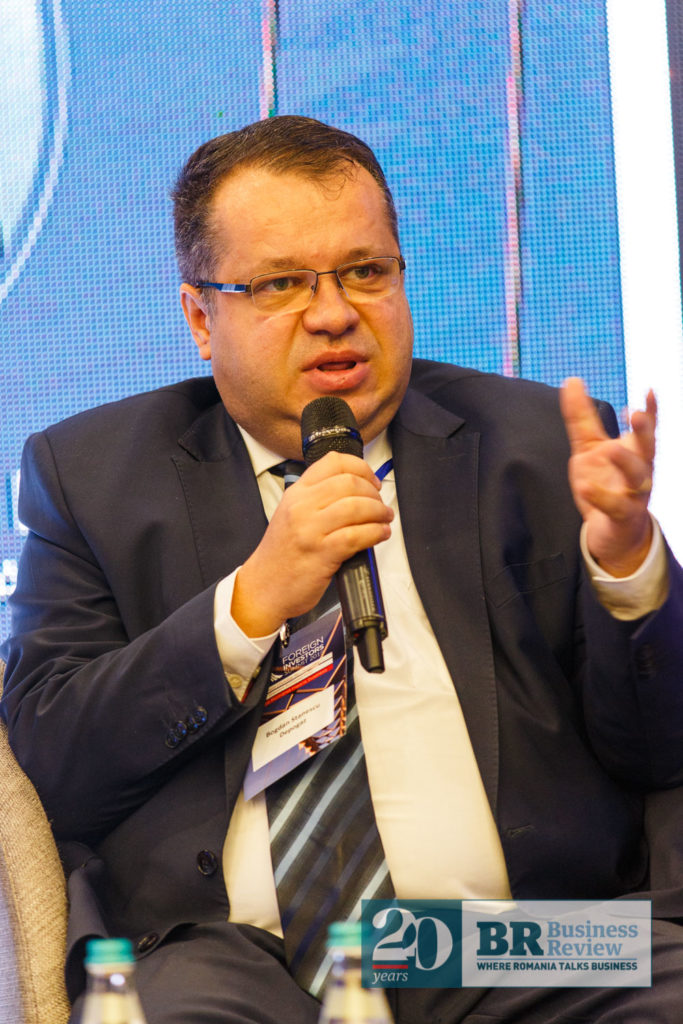
Bogdan Stanescu – President of the Board | Depogaz
- The offshore law has many flaws but there is no such thing as a perfect law.
- We are now a company on its own, not anymore a department of Romgaz. We have a long term investment plan
- Today, Romania has a gas deposit capacity of 2.8 billion cubic meters (mc) and we want to go up to 4 billion by 2022.
- Investments in the next 4 years will double the capacity of storage.
- We also need to stay and talk to Hungary about our role in the area
- RON 750 million is the investments programmed for the first 4 years.
- We want to finalise and implement all there needs to be done in order for Romania to become an Energy Hub in the region. Of course, this is a political decision.
- We need to balance storage capacity with consumption at it’s peek, like during the winter
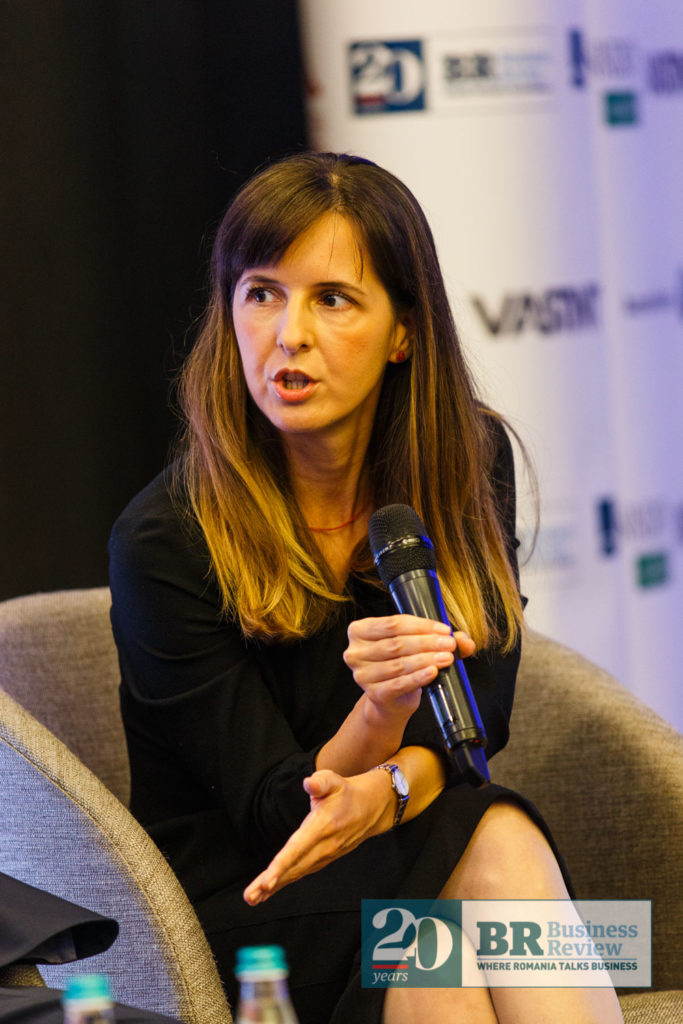
Ruxandra Bologa – Partner, Co-Head of Energy and Natural Resources practice | NNDKP
- The offshore law will enter into force, there are no more obstacles to delay it. We will see if the law has everything in order to be adopted.
- The licensing process needs improvement like in any European Union country, for oil and gas companies.
- There are some gaps in the regulation. We have the environmental laws and investments need to be made in compliance with the law.
- We need to transform the local gas market into a regional one, it is a process of globalisation.
- The offshore law says that 50 percent of production must be sold through the centralised market, but this doesn’t apply for importers of gas. We need to balance equalise legislation for both parties.
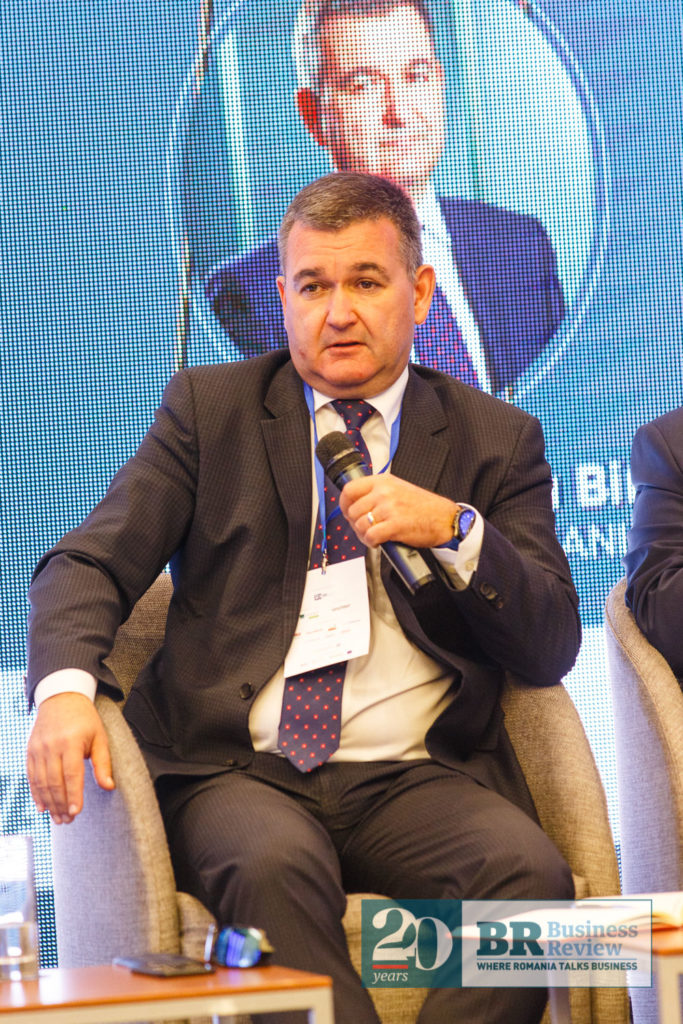
Alexandru-Valeriu Binig – Senior Advisor | Ernst&Young Romania
- The gas in the Black Sea is located about 180 km offshore and 1000 meters deep; is it really ours, meaning can we take it out and used it? Apparently not, we need some specialist to do that.
- There is a ‘good will’ in this project.
- Today there is a 1 billion mc gas deficit on the market. If we tap the Black Sea gas we will have a gas surplus; what will we do with it? Europe buys gas from mature exploitations at better price.
- We will have a commercial war on gas pricing and Romania is not competitive- while we will have a high production cost we also come with high taxes. It will not be good for this project nor for investors.
- There are a few big projects ongoing in the power sector, but let’s not forget that three of the total four are supported by China and Chinese investors and we don’t know yet what will happen.
- Electric car use will equalise the combustion engine in 2023 as we have seen in our studies.
- Energy export price is established by the market and it is not high enough to make profit and to lead to investments.
- On the medium term the only big project in the energy sector is that of Romgaz, but it is not enough to cover the needs of an old system that has to come with new capacities of production.
Keynote Speech
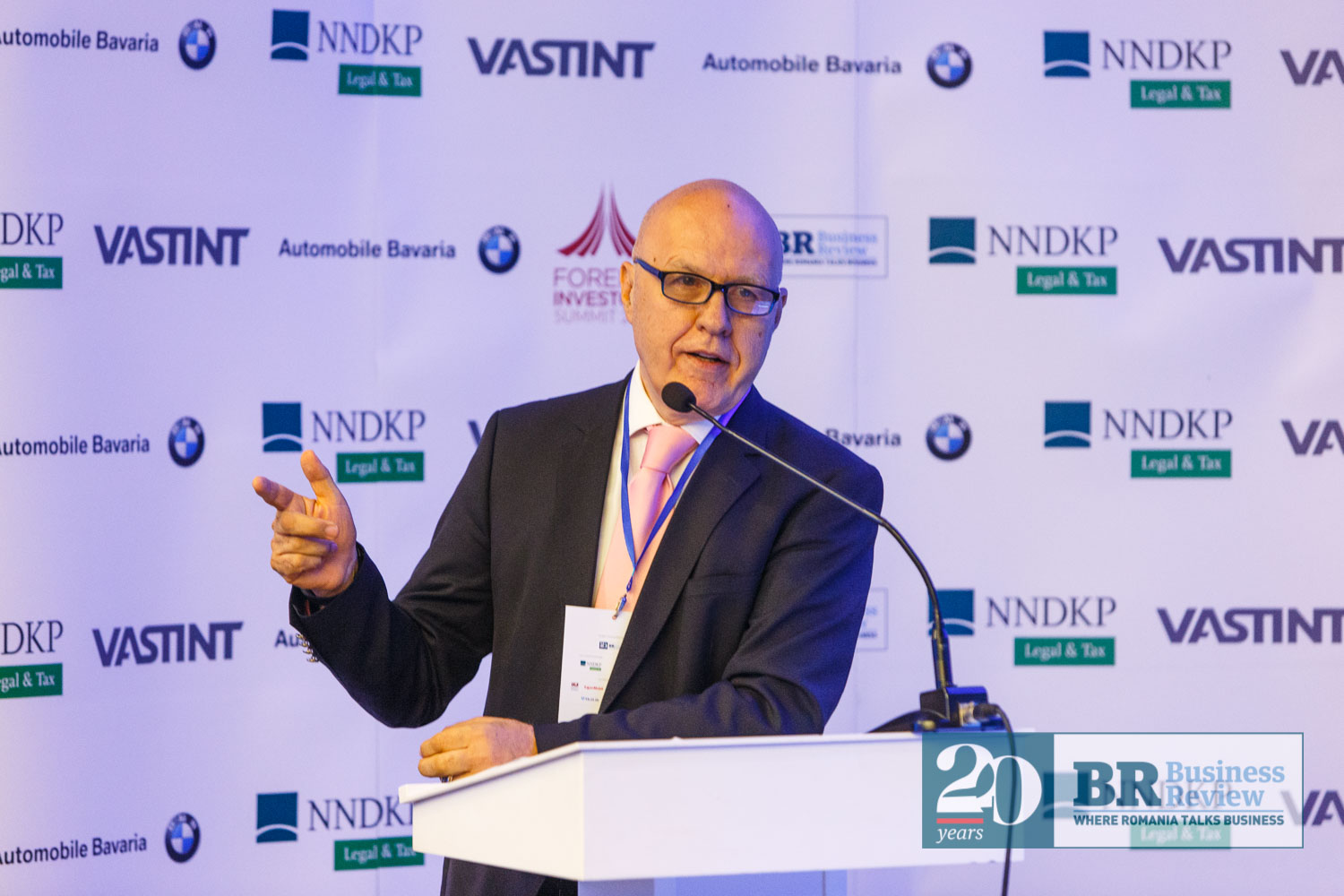
Ioannis Markos – Minister Plenipotentiary for Economic and Commercial Affairs, Head of the Commercial Section | Embassy Of Greece in Bucharest
- Romania is a very big country with a good economic growth, low inflation and low unemployment rate, and also with low public debt and low budget deficit.
- But you have a problem with Infrastructure. Some investors are having also problems to find personnel and specialised staff.
- Romania offers good opportunities, like industry, energy, chemical production. It is a good country, we have two hubs in Cluj and Iasi.
- Greece is a smaller country, half the size of Romania, concentrated in two major cities. And we have a 90 percent EU funds absorption.
- Romania has many advantages in the region, like taxation.
- There are 6,988 Greek companies registered in Romania, 1,500 active, with a total investment of EUR 4 billion according to our data or EUR 2.7 billion according to BNR.
- In banking sector we used to have around 61 percent of the market, but now we have only 5 percent.
- Coca Cola, Olympus, Genco are just a few examples of Greek companies in Romania. Also, strong in the pharmaceutical sector, like Imedica or Softmedica. Jumbo in retail. We are present in all the sectors of the economy.
- The commercial balance between Romania and Greece looks good.
- Around 1.3 million Romanian tourists visited Greece in 2017.
- One of the things that Romania can learn from Greece is in the absorption of EU funds
- Our advice we give to Greek companies is to open an office here because it is easier to manage the business from here, not to manage it from Greece.
- Also, we advice our Greek businessmen to take the Romanian partner to lunch, it is a good thing here and very important.
- Romania is a very competitive market today.
Panel Discussion | Real Estate – A Foreign Investment Review
Antoniu Panait – Managing Director | VASTINT Romania
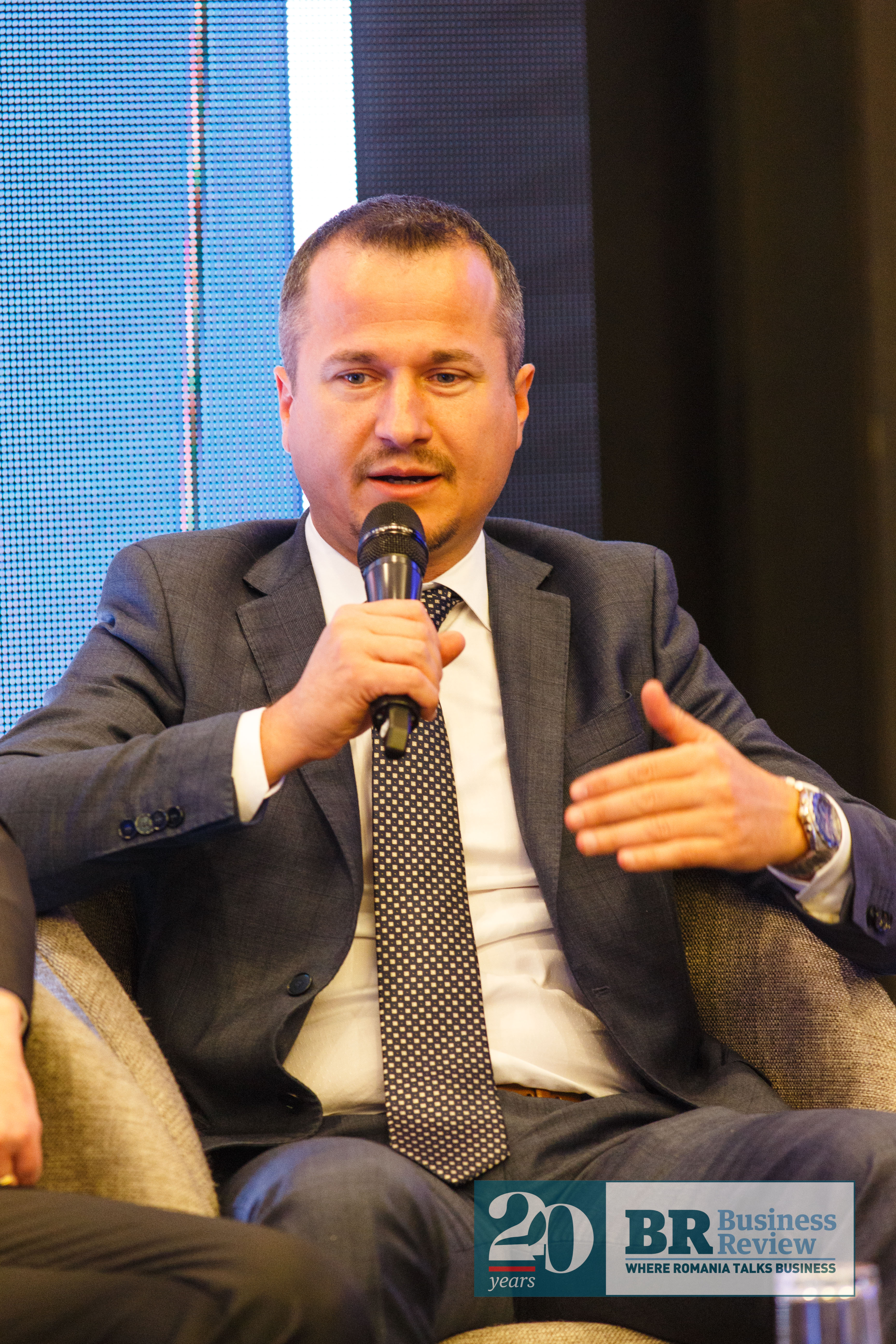
- HR departments have a bigger role in finding a location for office building construction. People want to work close to home. A trip longer than 30 minutes to the office reduces productivity.
- The city is balancing now. The Orhideea area has grown very fast in recent years. More than 100,000 square meters were built in a few years.
- Also, Timpuri Noi area- It was not an experiment, things are advancing very fast there and it is a very attractive area.
- Bucharest is evolving and there is place for new big developers.
Vlad Tanase – Partner NNDKP, Real Estate practice
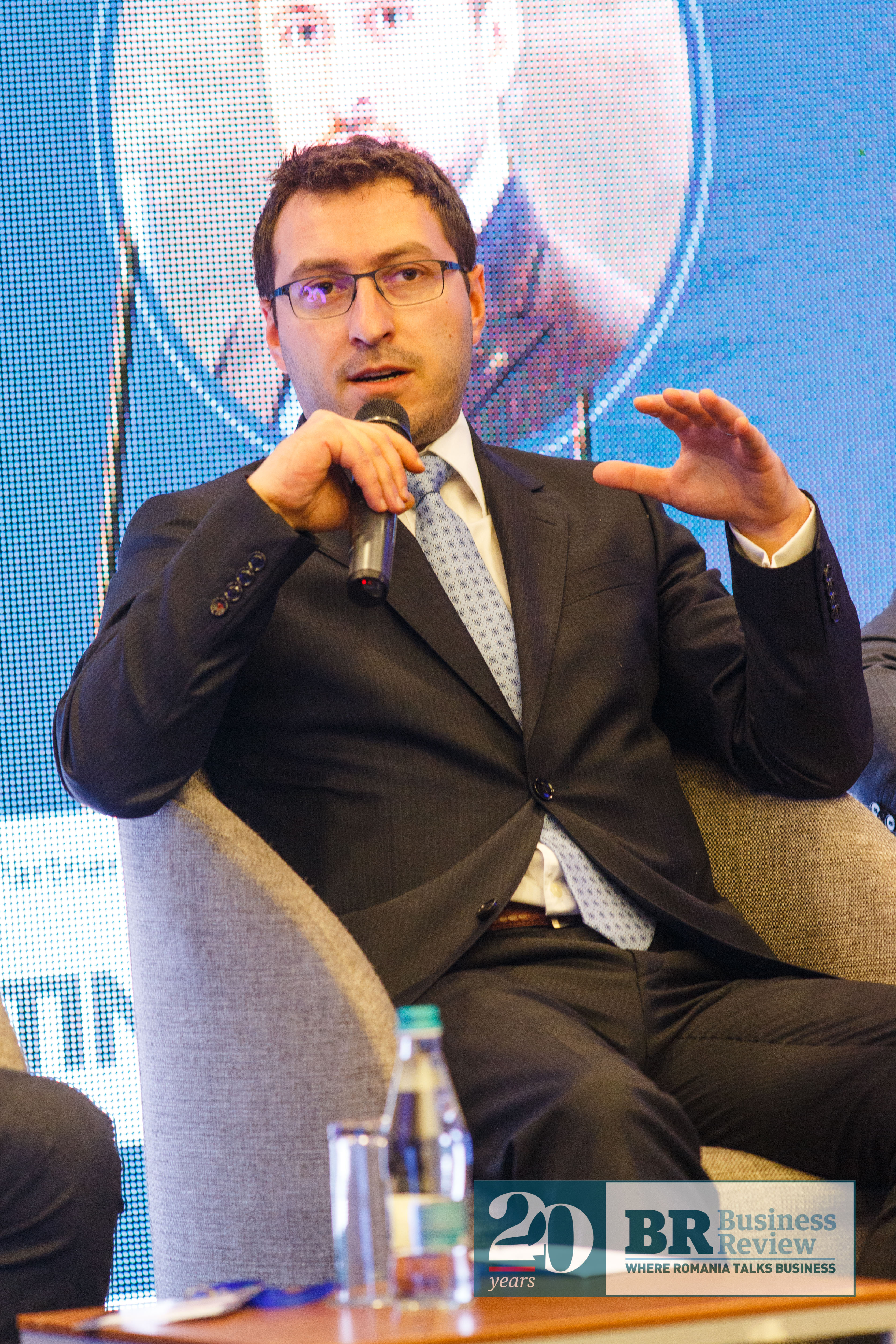
- There are a few big players that develop and sell projects. Several business poles have been created – Pipera, Floreasca, the West, which is now in continuous expansion. The quality of the tenants is better, if a crisis comes, the impact will not be lower compared to 2008.
- In 2008, the crisis first impacted the small Romanian retail players. Now we have big retail players
- I do not expect to have many new malls in Bucharest, the market is already at a certain level.
- The problem in Romania is the lack of predictability when it comes to PUZ release.
- It’s hard to buy land if you do not know if urbanistic coefficients will be approved.
- It’s even more difficult to obtain approval for a project than it was before.
Catalin Gavrila – Head of Land Development | Crosspoint Real Estate
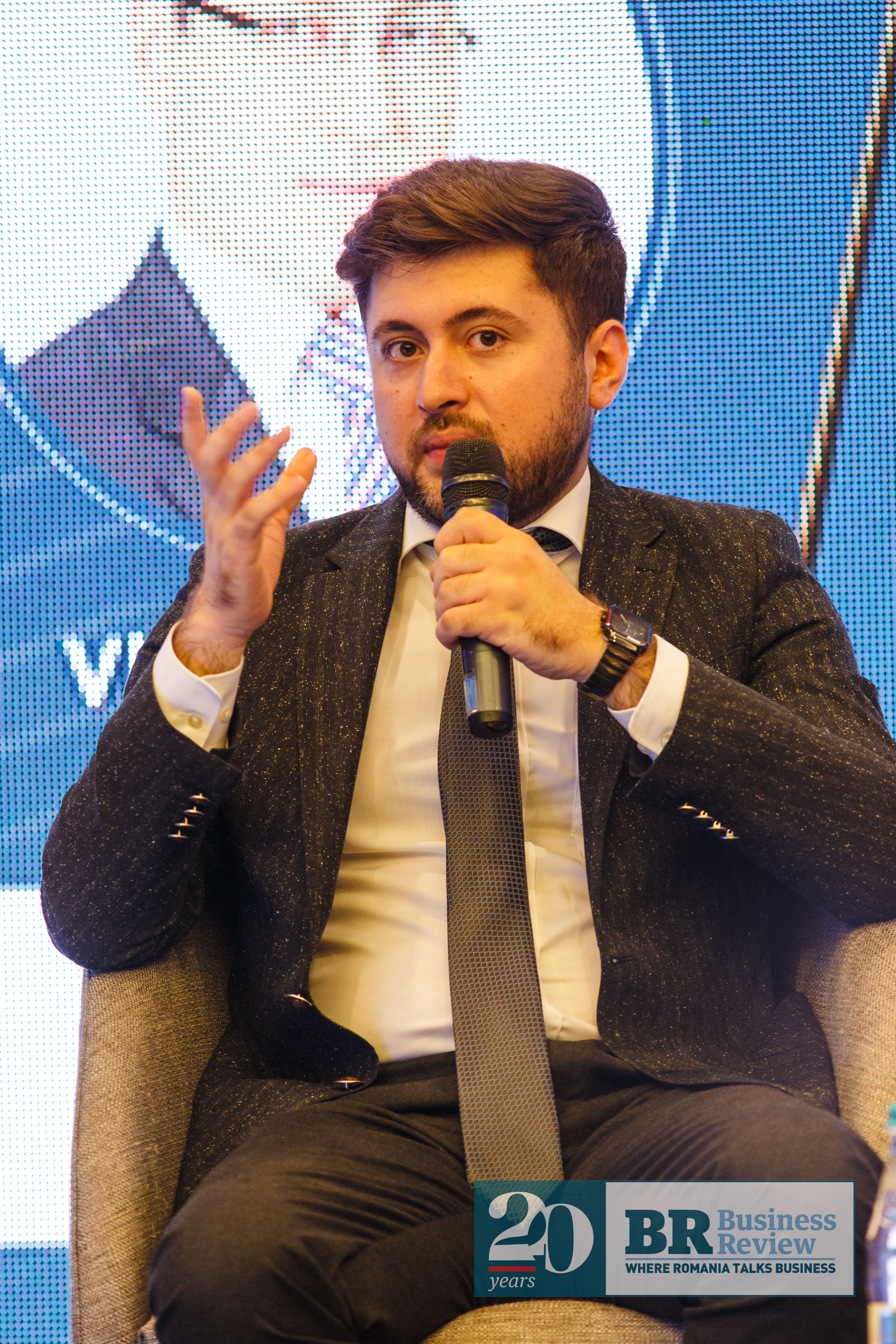
- It was difficult 10 years ago to see how the center-west area of Bucharest will evolve.
- Big players on the real estate market like Vastint can see trends better.
Mihai Zaharia – Director of Investments and Capital Markets | Globalworth
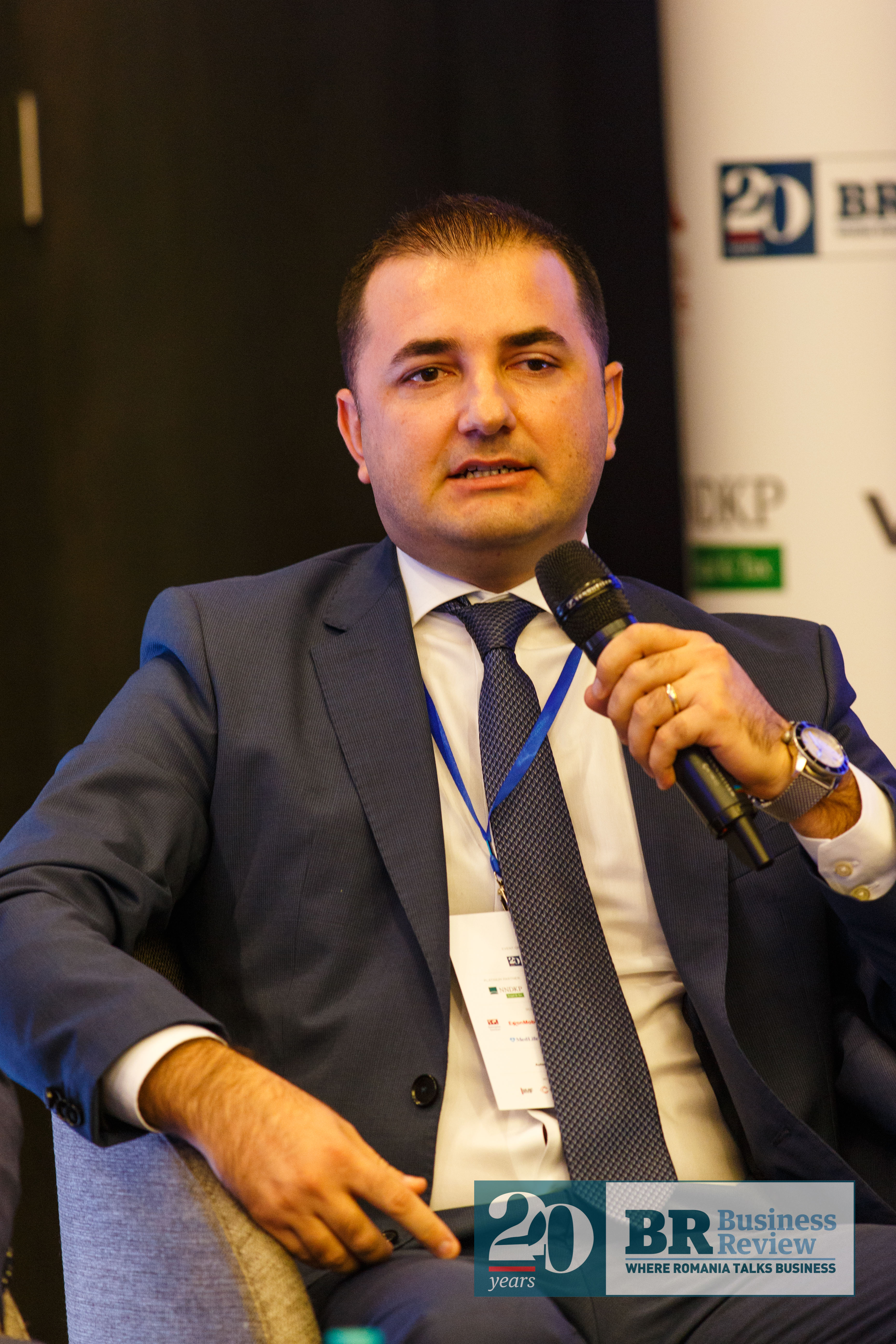
- I think it is more important not to try to guess when the crisis comes, but to be prepared for it any time. Now the structure of the Romanian market is much more prepared to absorb shocks.
- We are much more prepared – the rent level is 10-20% below the pre-crisis level. Demand is much more sustainable in the long run.
- There are economic factors: economic growth in Romania will remain above the European average and the quality of the players in the market is better – they are more experienced and more cautious.
- Infrastructure is needed to create such a pole like the one at Orhideea.
- We entered cautiously in the western part of Bucharest. The idea of creating a pole linked to infrastructure is the healthiest in the long run.
- There are a few infrastructure elements in the west to create a similar pole to Orhideea.
- The office market is concentrated in Bucharest, 2.5 million square meters. In regional cities they are just beginning to develop. There are two cities with more than 200,000 square meters and they become interesting for us.
- We’re working on raising the portfolio, but also on the value the portfolio gives.
- We have the last tower delivered to the Campus project. By the end of next year we will deliver the final tower from the Campus project.
- We want to grow our portfolio in the logistics and commercial areas.
- There would be three major directions in the real estate market: creating communities, implementing technology and coworking.
- At this time, in our real estate portfolio 100,000 people enter every day. We want to create a community, an identity. We promote young artists through technology.
- Employees of our tenants can admire this through technology.
- This community will give value to our entire portfolio. It means creating a space for the community to communicate.
- We will sell places in a community.
Keynote Speech
Christian Von Albrichsfeld – CEO | Continental Automotive Romania
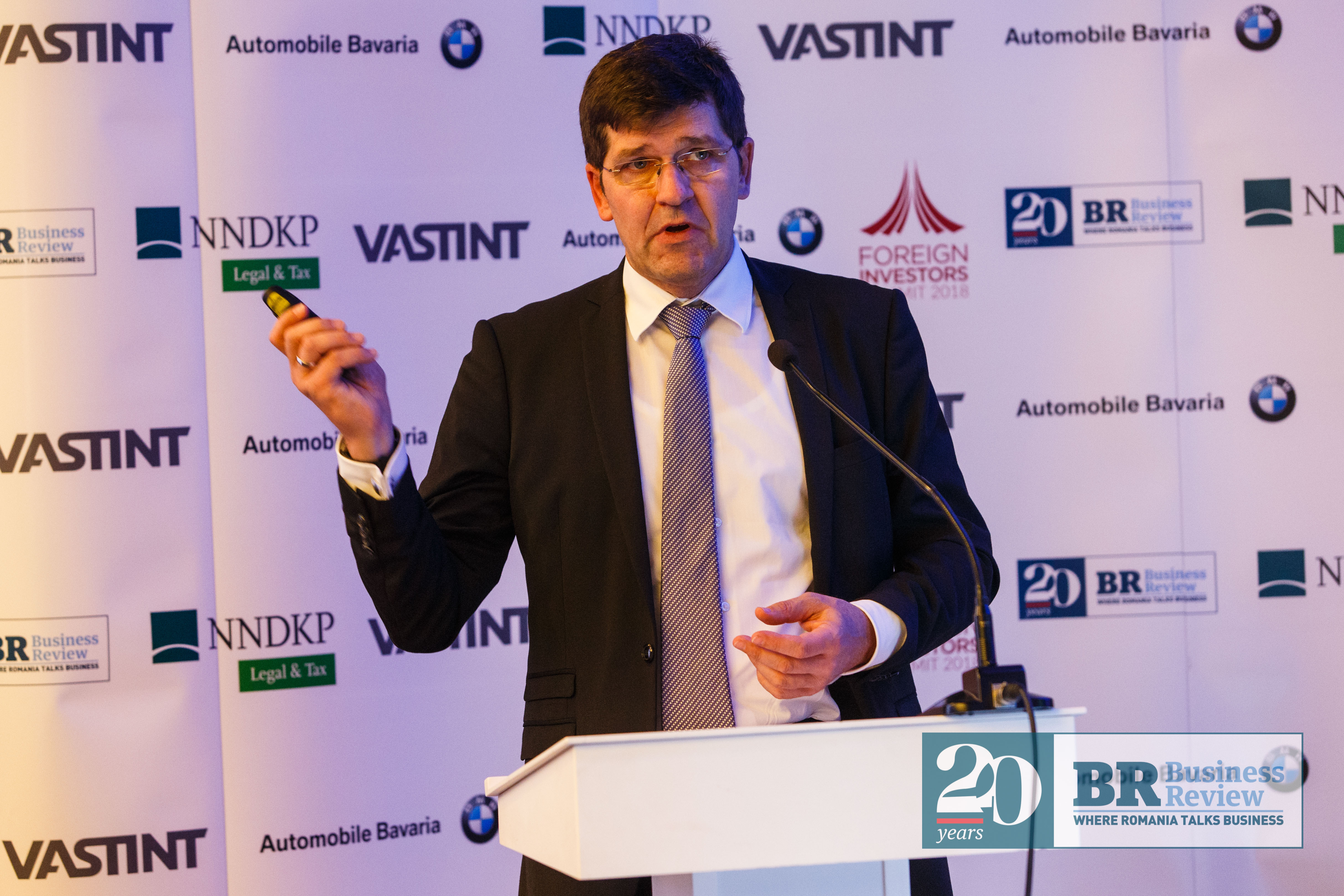
- Continental has over 243,000 employees throughout the world. 60 percent of the business is focused in the automotive industry.
- Clean power, autonomous cars, interconnected cars – these are some of the technologies we are working on.
- In Romania we have over 19,700 employees and we invested EUR 1.4 billion, in 10 locations. 5,700 people are working in R&D and the rest in production.
- Among new technologies we are working on is the solution to connect smartphones to cars without using cables.
- In Romania, the growth was mainly based on consumption. But the investments, including public investments are lower, especially in the infrastructure. Romania lost competitive advantage in the region, as we see that major investments are now done outside, in the neighboring countries
- Serbia, Ukraine and even Hungary are the next major competitors for Romania.
- The gap between medium wage and minimum wage has decreased too much and companies cannot keep up. They will start to automatize production.
- Romania has lost the competitive advantage of low wages, so why would investors choose Romania instead of other countries in the region?
- The high disproportion between labour costs and productivity has to be and will be corrected.
- Romania needs investments in Education and predictability, especially in the fiscal system.
- Continental collaborates with both sub-universities and universities level of education. We have a self-driving car developed in Romania, we are working on smart cities. We need more people in IT, in software structures, in technology fields. And we need a Start-up culture
- The big cities need to be connected to western highway network. More clever approaches are necessary in this field, like connecting Brasov to Sibiu instead of trying to go over the mountains
- There are several things that we need to bring back to Romania, such as predictability (to be able to plan 5 years in advance), stable fiscal system, sustainable growth, more infrastructure investments and better education
Panel Discussion | Romania 2.0 – Low Tech & High Tech Investments
Shibu Nambiar – SVP & COO | Genpact Europe

- The education system around the world is old and needs to be renewed.
- Genpact has around 6,000 employees in the world (Romania, Hungary, Poloand, UK, Slovakia, Holland). I have to say there are many things goods here.
- I promote Romania more than the other countries because the talent is still here.
- Also, people here are doing a lot of things for the local communities. We also have projects in education.
- Vocational training is needed throughout the world, not only in Romania.
- There is a tendency to look on short and medium term, not on the long term.
- There are programs in the world that try to bring back the people that left the country; Romania should do the same.
Bogdan Popescu – VP | ANIS, Marketing & Operations Director, Interim. GM | Microsoft Romania
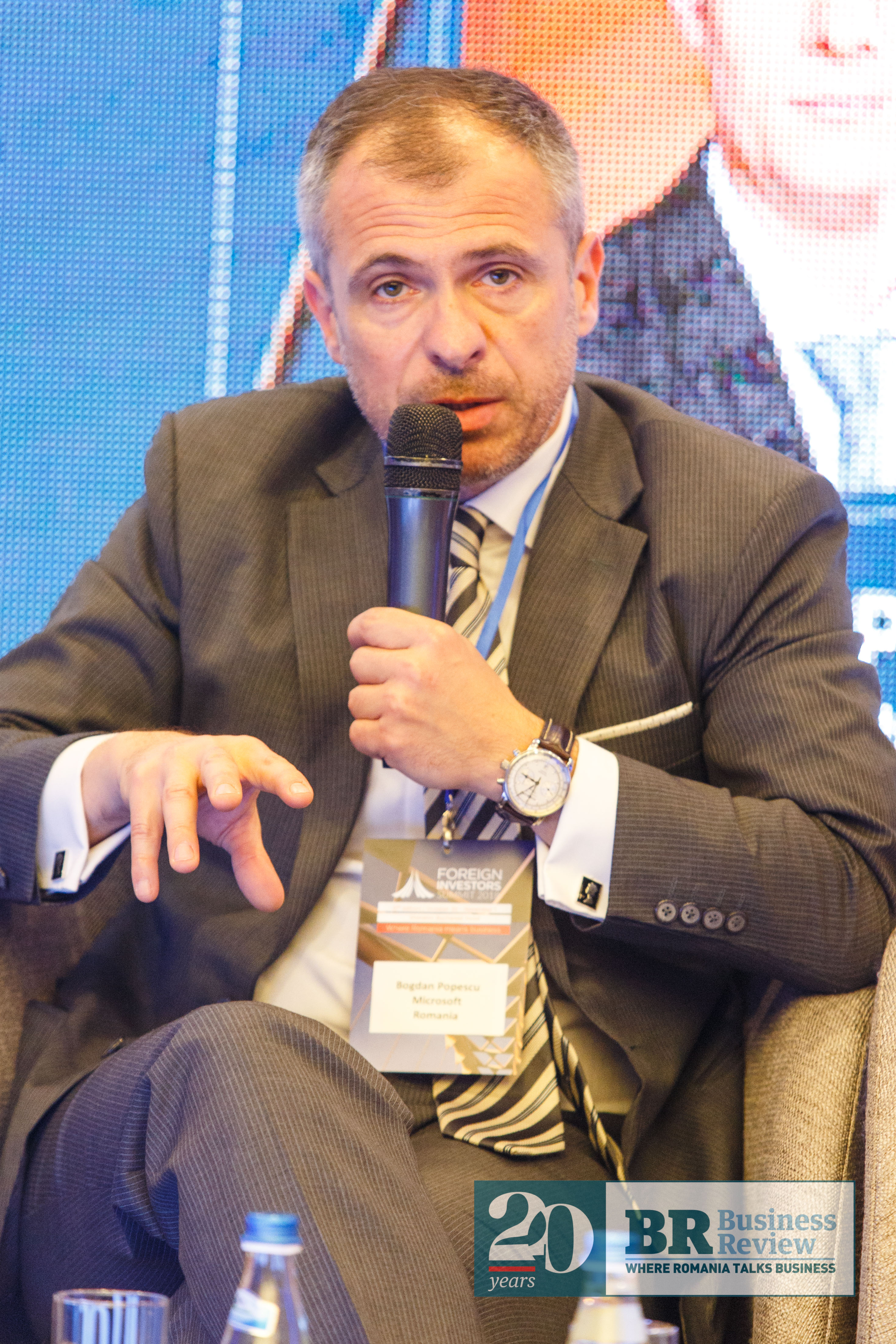
- Going a little bit behind: Romania is one of the least educated in IT country in Europe.
- The way we look at digitalization is one of the most important things. Also, digitization is something very real. And it is for the many, not for the few.
- These are the most important things in today’s situation in Romania.
- The Republic of Moldova is more advance than us in terms if digitization in the fiscal system, they have been using the digital signature on daily basis for the past five years
Catalina Dodu – Country Manager | Atos IT Solutions & Services
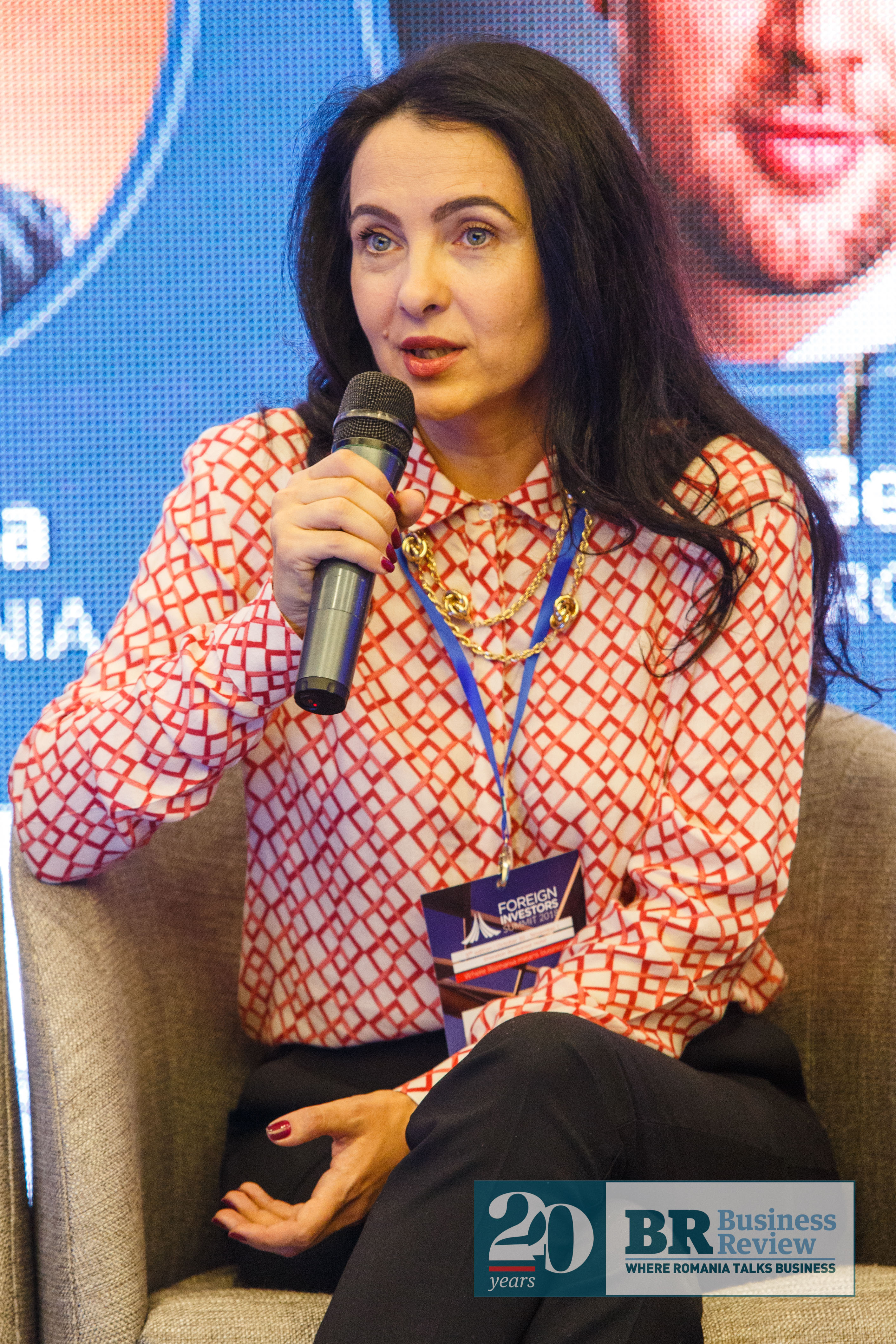
- Romania doesn’t have a good position when we talk about R&D.
- There is no incentive for R&D; it is a part of ATOS activity, but from the public area there is almost nothing.
- We need more people in the field, we need investments in new projects.
- We offer scholarships (10 in total) for teachers in order to learn what technology can do.
Dorin Pena – General Manager | Cisco Romania
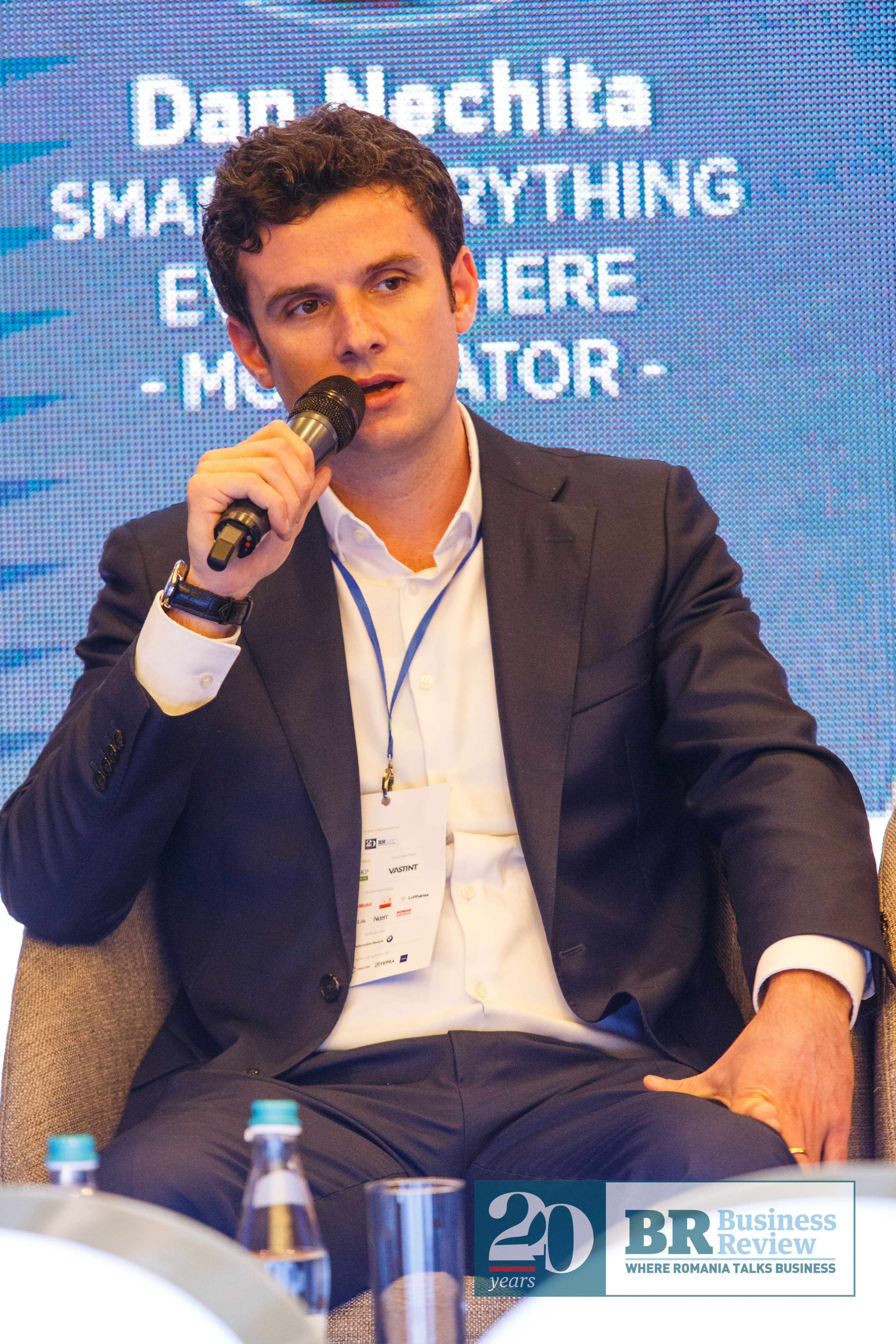
- There are 2 areas that are developing, those working for outside customers and the rest working for our market.
- Five years ago it was a pride to have a certification from Cisco, Microsoft or other. Now, many students are focusing on things like basic Java that are very easy to learn.
- That is because today it is easier to get a job in the IT industry. Corroborated with the demographics that show the ageing of the population we can see that is a big problem and it will just get bigger.
- Education is one of the answers for the future. At Cisco Networking Academy we had over 100,000 students in 20 years of existence, making it one of the most successful courses in Romania.
- In this way we can increase the productivity and the specialization of the IT people.
- This is what the entire industry should do.
Philippe Beucher – Executive Managing Director | Capgemini Romania
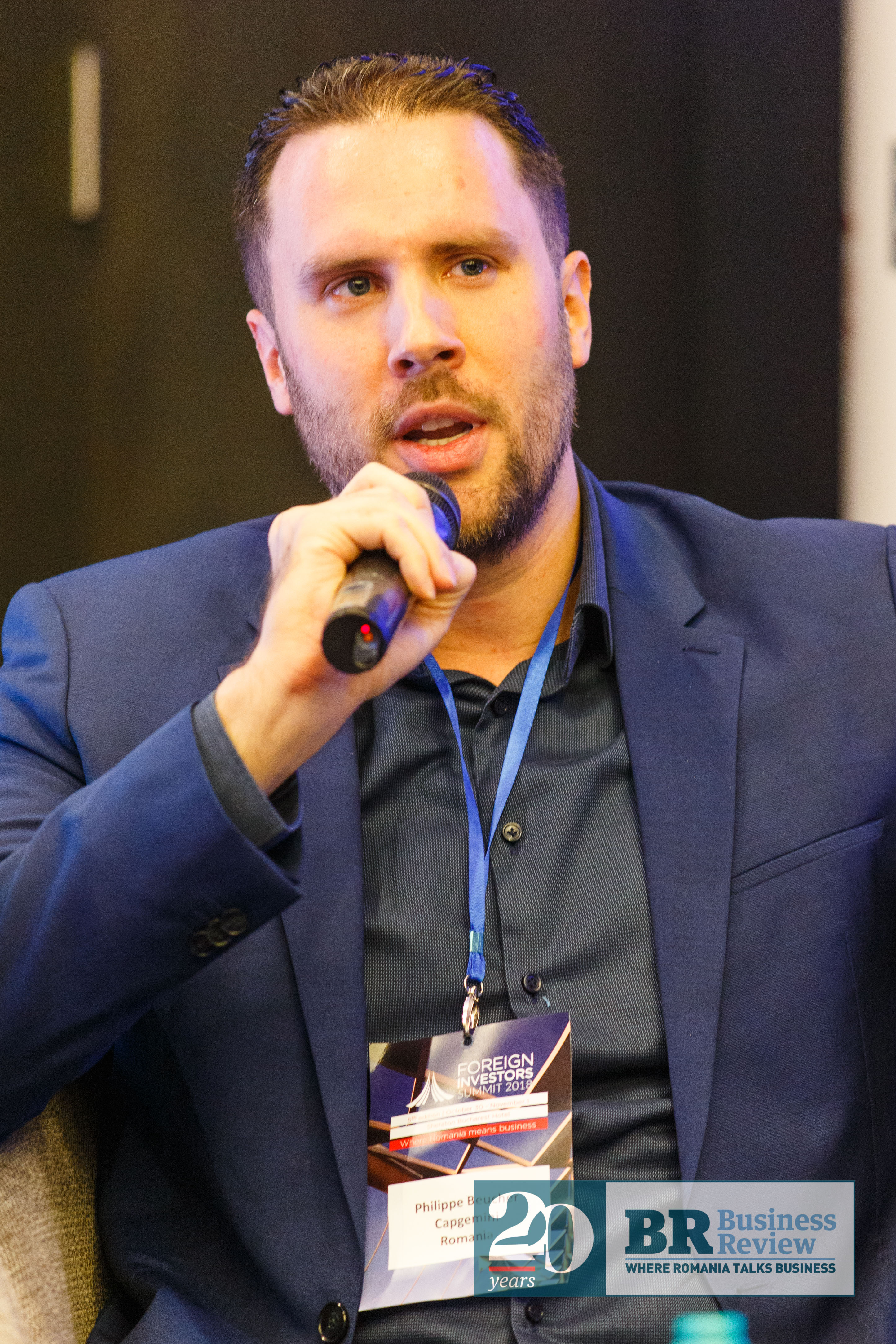
- It is amazing to see how many inventions were made in Romania in the past 100 plus years.
- There are teams competing in robotics that are winning international competitions.
- We see some fiscal changes that are very difficult to explain to the head-office back home.
- Education, governmental stability and predictability are the first things Romania should confront to become more attractive.
Ioan Cocan – Managing Partner | Tremend
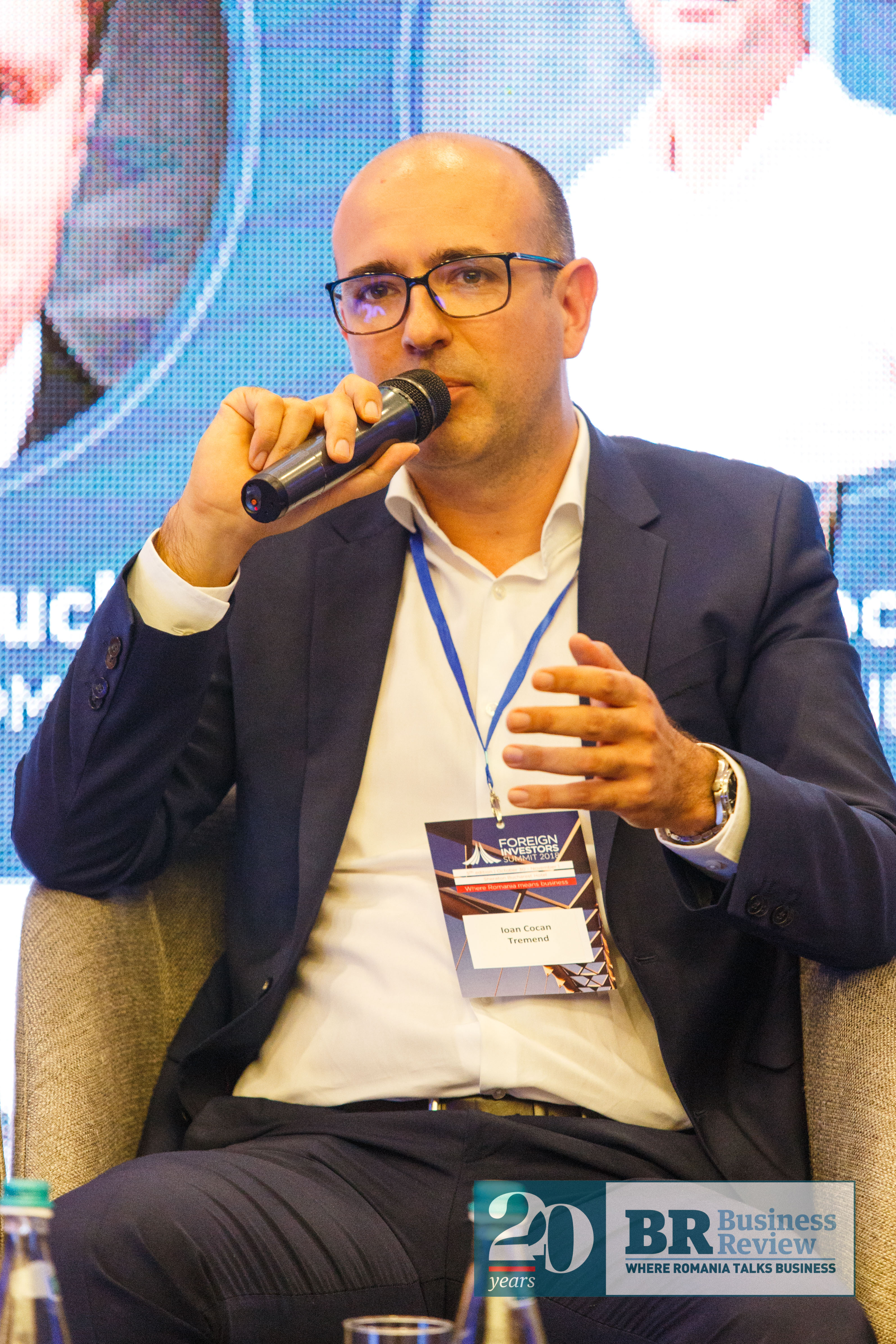
- Tomorrow is Tremend birthday, we turn 13 years on the Romanian market
- We would love to give some support at the government level, but we had to do it on our own.
- We also have intiatives like Academy Plus in the education field.
Bogdan Florea – CEO | Connections Romania
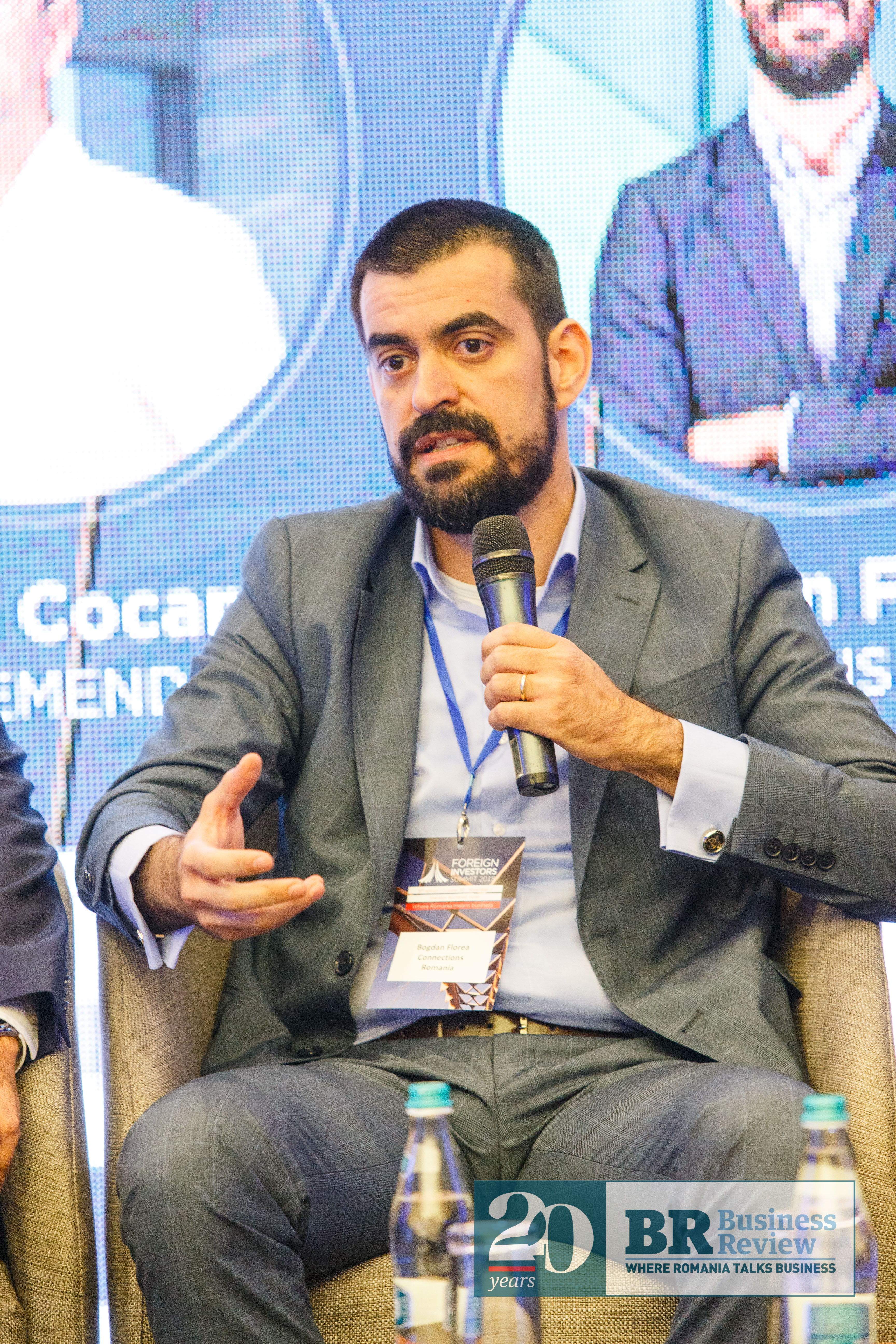
- We are very far from being competitive, in terms of education
- R&D should take place in the universities, where products should be invented. This is what private companies are paying for, for products to be developed inside the universities.
- Also, there are virtually no Romanian companies expending outside, while in Poland or Hungary, or even Belarus, there are tens of companies well-known abroad.
- It would be good to promote the entrepreneurial idea in the schools and after he school, it is one of the things Romania needs.
Panel Discussion | Roads to Romania – Hopes for better infrastructure
Cristian Nacu – Sr. Country Officer for Romania and Moldova, IFC
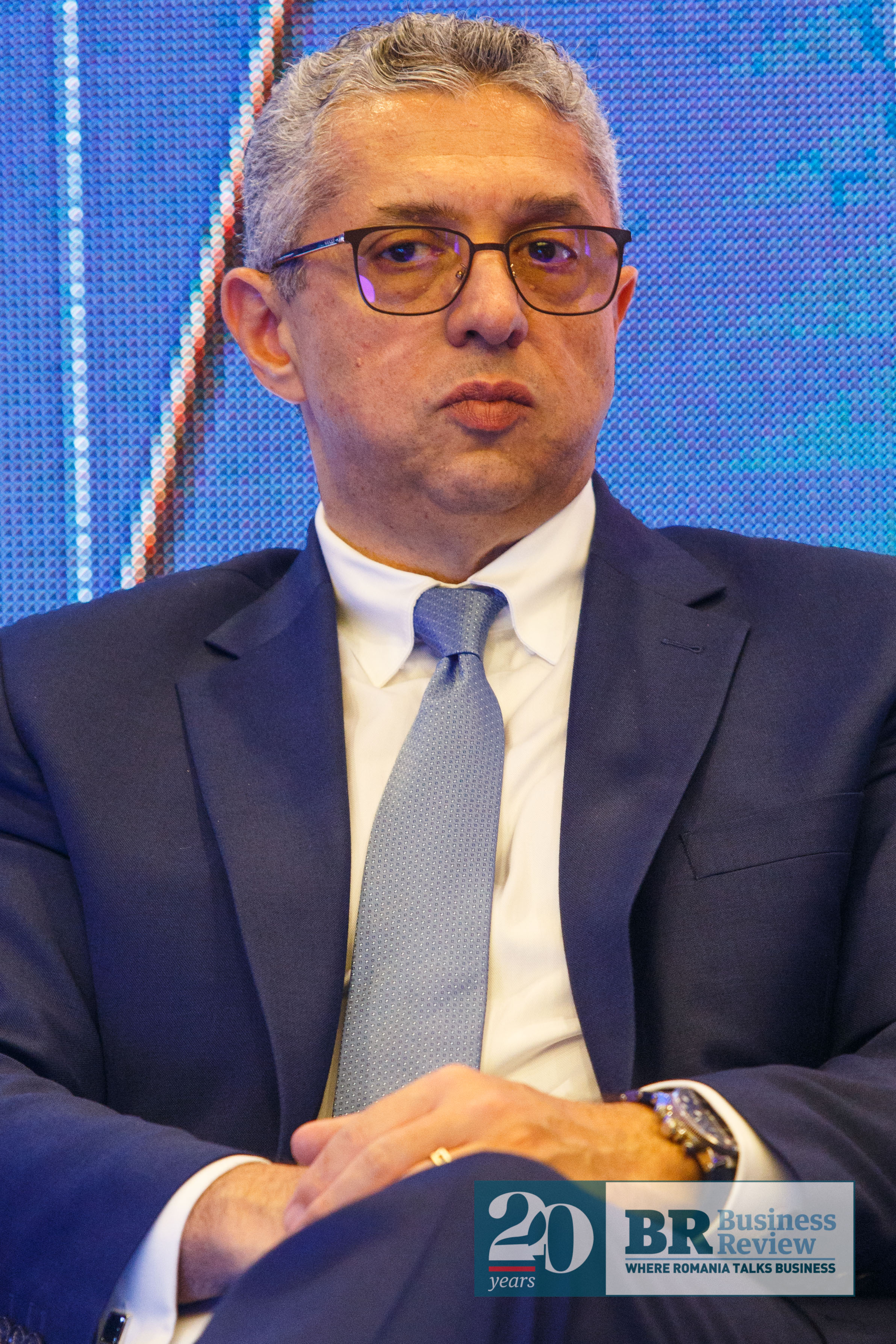
- We need better roads and public airports. The basic thing is that anything that will be done from now on, it will well received because there is nothing happening right now.
- We made many PPP (private-public) advisory for projects and there are many things needed in order to make such a project a success
- One thing that we should do is to absorb EU funds. It’s free money that we should not miss.
- The infrastructure in general, not only transportation, is a big problem for Romania.
- Due to lacks in the education system, the entire country has problems.
Sebastian Metz – General Manager | AHK RUMÄNIEN
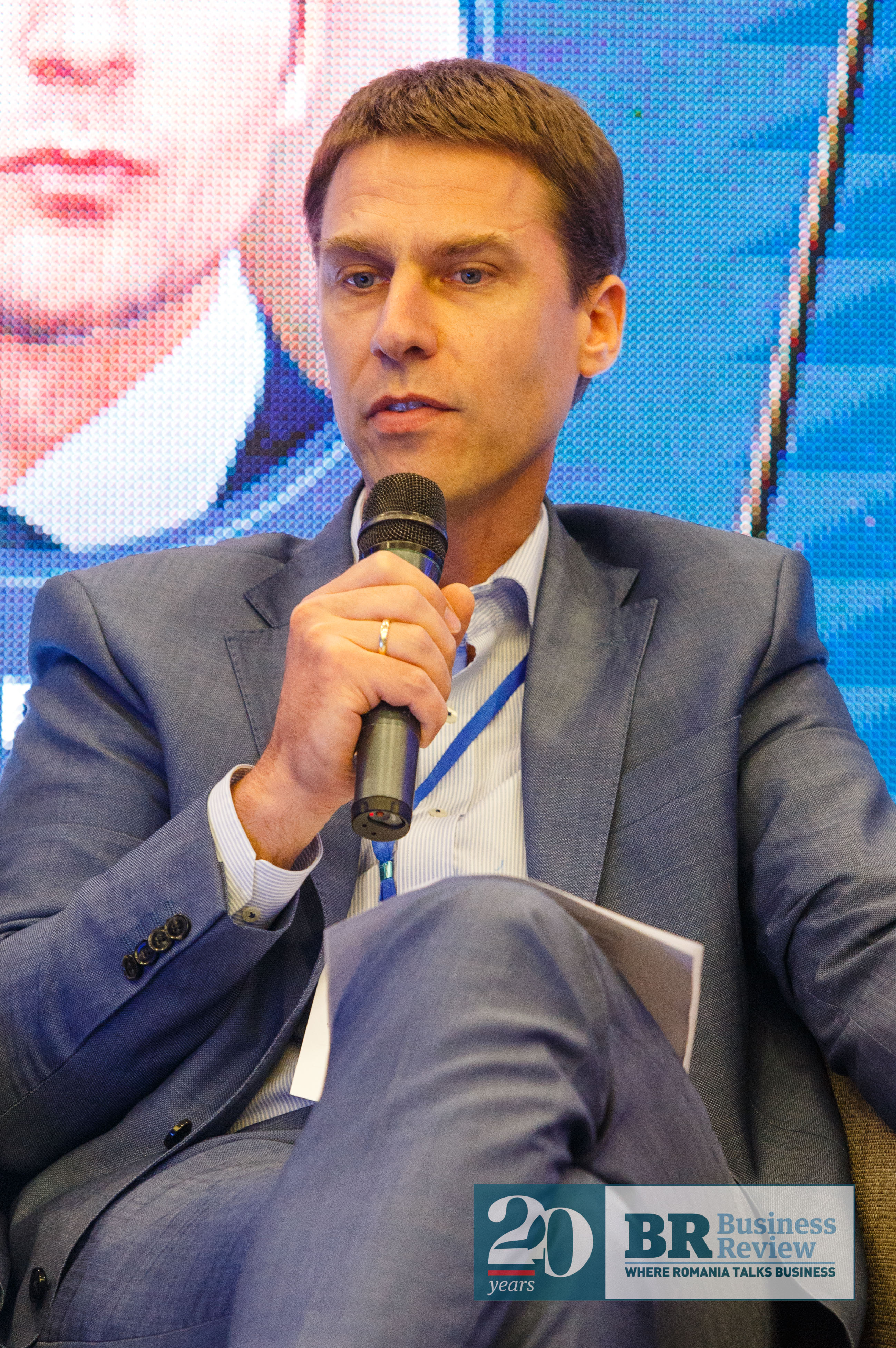
- The number one priority is Education. Second one is Infrastructure. It is a must to connect Transilvania with the East part of the country
- Romania has an unbalanced economic growth. You cannot attract investors if you don’t have fast road connections
- The unbalanced development will intensify also on he increase of wages. Foreign and local investors will decide to go somewhere else.
- It is not only Iasi, but also Braila, Galati and others. This undeveloped regions need a chance in infrastructure to keep their investment advantages
- Everything is linked. If you have to drive 2 hours for a 60 km road on your way to the job you are not going to do it, it is too long.
- And no investor in manufacturing will invest in a region with poor infrastructure.
Sebastian Burduja – Managing Partner | RISE Consortium, Romania Investment Solutions Experts
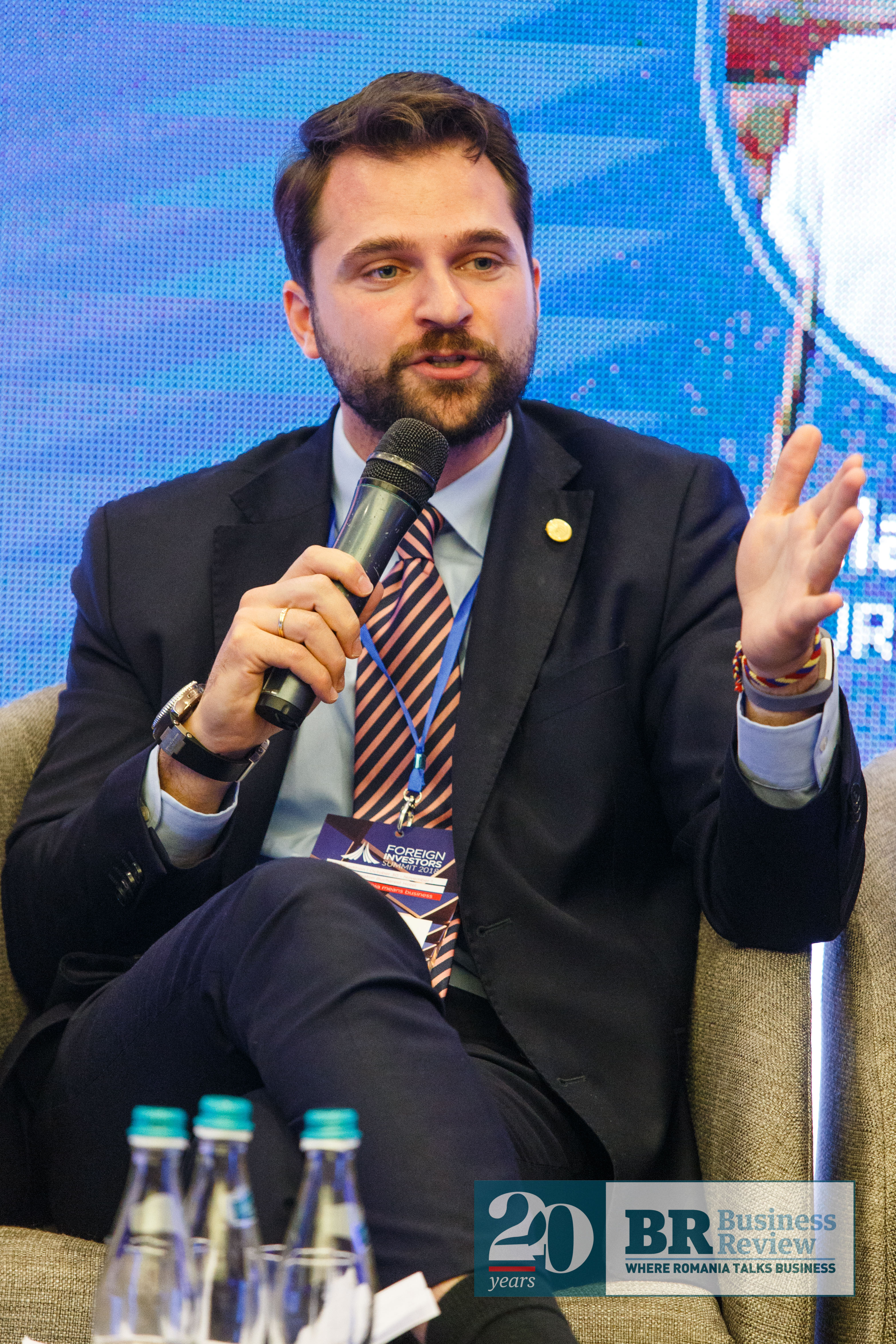
- Romanian is 130 years behind the developed world according to a study made by AT Kearney.
- Romania is spending a lot of money but not on what it’s needed.
- There are hundreds of strategies made that we don’t need; we only need one that and we should stick to it. There is a very poor coordination between different institution and organisations.
- There is some development on public procurement but not enough. It should be standardised, just like in Western countries.
- It is crazy to have a feasibility study for a highway like Pitesti-Sibiu made in just 6 months.
- Also, there is no government monitoring of all these projects and studies; it is a waste of money.
- The bureaucracy is also an obstacle, many projects are stopped by all the papers someone needs to get done before starting to work.
Gratian Mihailescu – Founder – Urbanize Hub
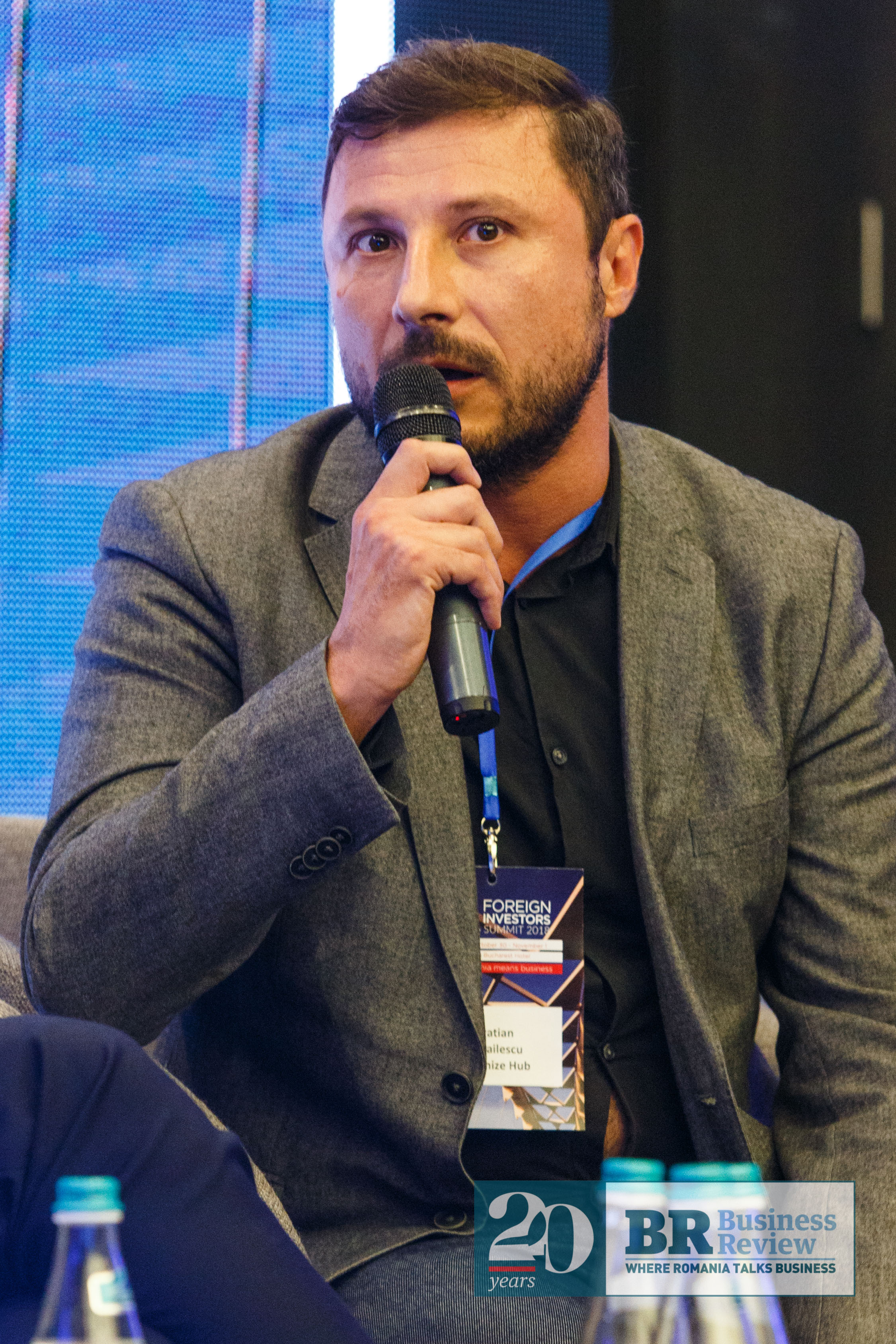
- A private initiative that started in Timisoara is trying to build a motorway between Tmisoara-Oradea-Arad-Cluj exclusively with private money.
- This shows that the private sector has had enough and is trying to solve the problem on their own.
- First, you have to brand your city in order to attract interest and then you have to build the infrastructure needed in order to attract investments. This is how Romania can grow, it is the best way.
Panel Discussion | The economic case for sustainability
László Borbély – State Advisor, Head Of The Department For Sustainable Development
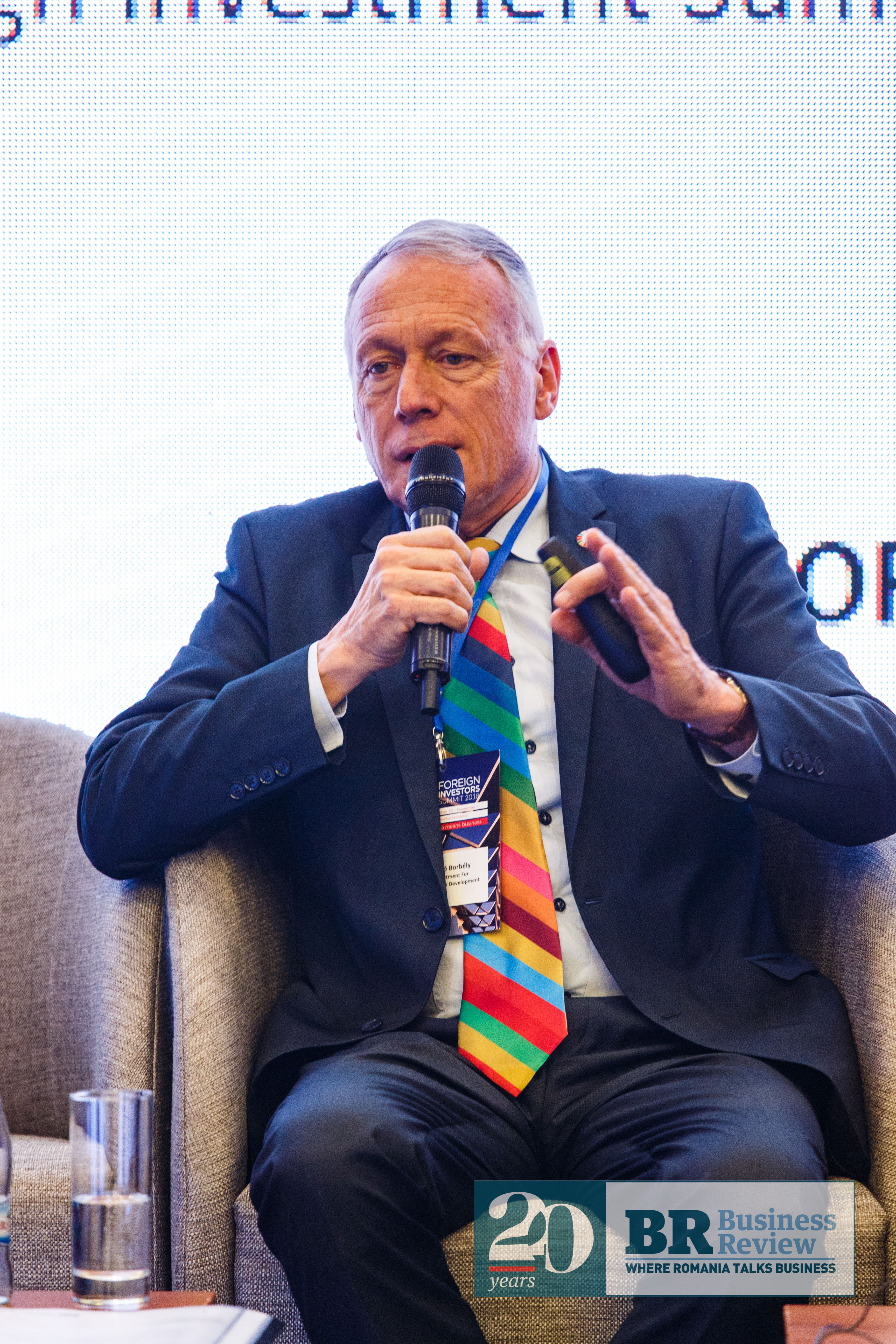
- 2015 was a year of crossroads for mankind, with several documents signed for the environment. Authorities have to answer: what do we do with our planet? I would ask here: what do we do with our lives? Both, at the personal and community level.
- For the 2030 Agenda many billions of dollars should be spent, money we do not have, neither us nor the other states of the world.
- We began reviewing the 2030 strategy after the establishment of the Sustainable Development Department in May 2017.
- We have 17 sustainable development goals that we need to thoroughly analyze and pursue in order to achieve our goals.
- We need a national network that every four years analyze the stage of the assumed goals.
- Circular economy is very important and we will introduce a reporting guide just like in Germany. It will not be mandatory, but in Germany no company thinks about completing it at the end of the year.
Alexandru Mustata – Campaign Coordinator | Bankwatch Romania
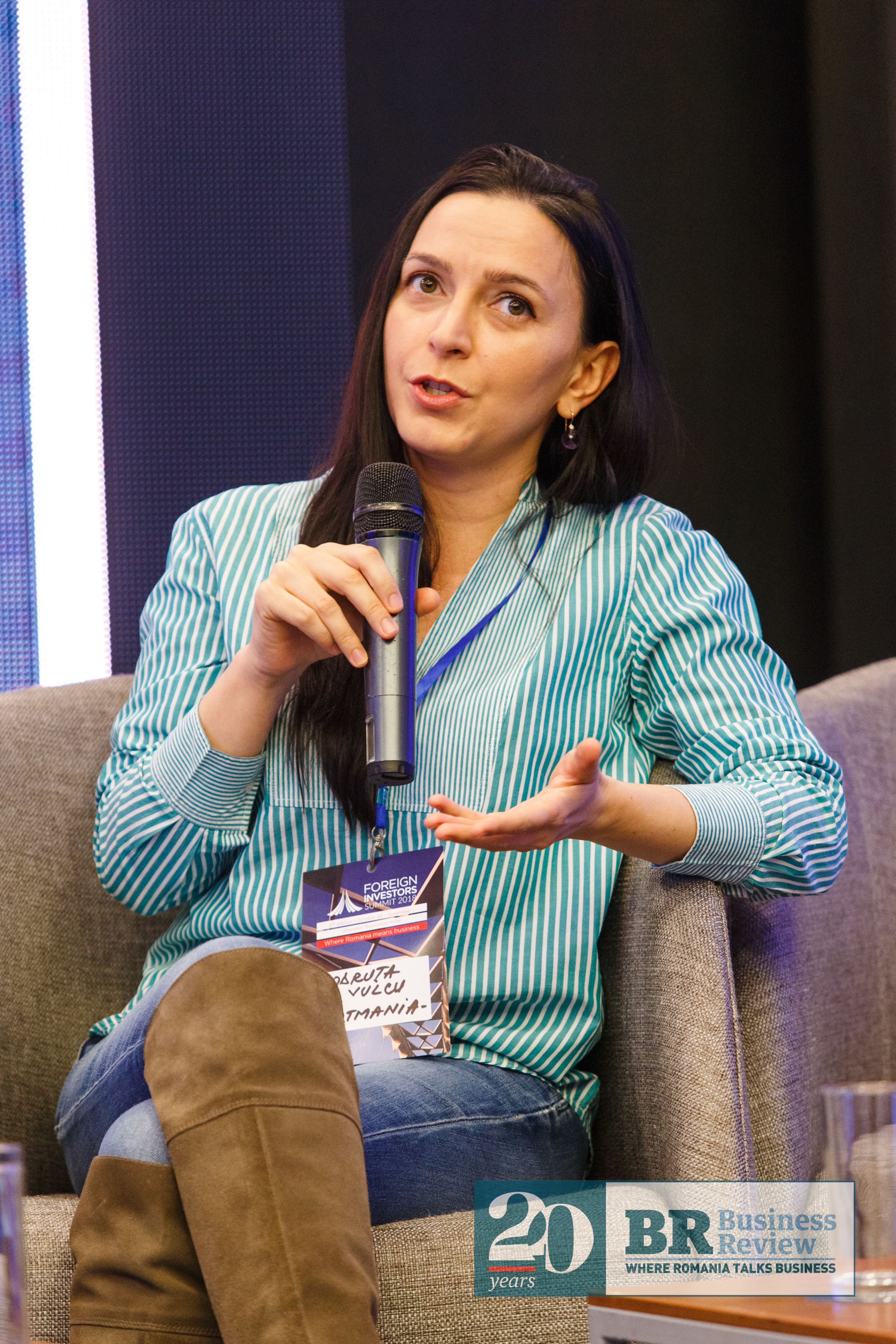
- Costs will increase and will have to do more to avoid paying more fines.
- For mono-industrial areas, Europe has a strategy. This platform gives access to European programs that support business. It’s about innovation or any kind of investment that creates jobs.
- We still have a lot to do, and if we were looking at the energy sector, we had a boon that now has to be quiet.
- Ambitions are growing when it comes to the environment.
- We do not have to see the sustainability measures as negative for the business environment.
Roxana Sunica – Marketing, Communication & Corporate Affairs Manager | FEPRA International
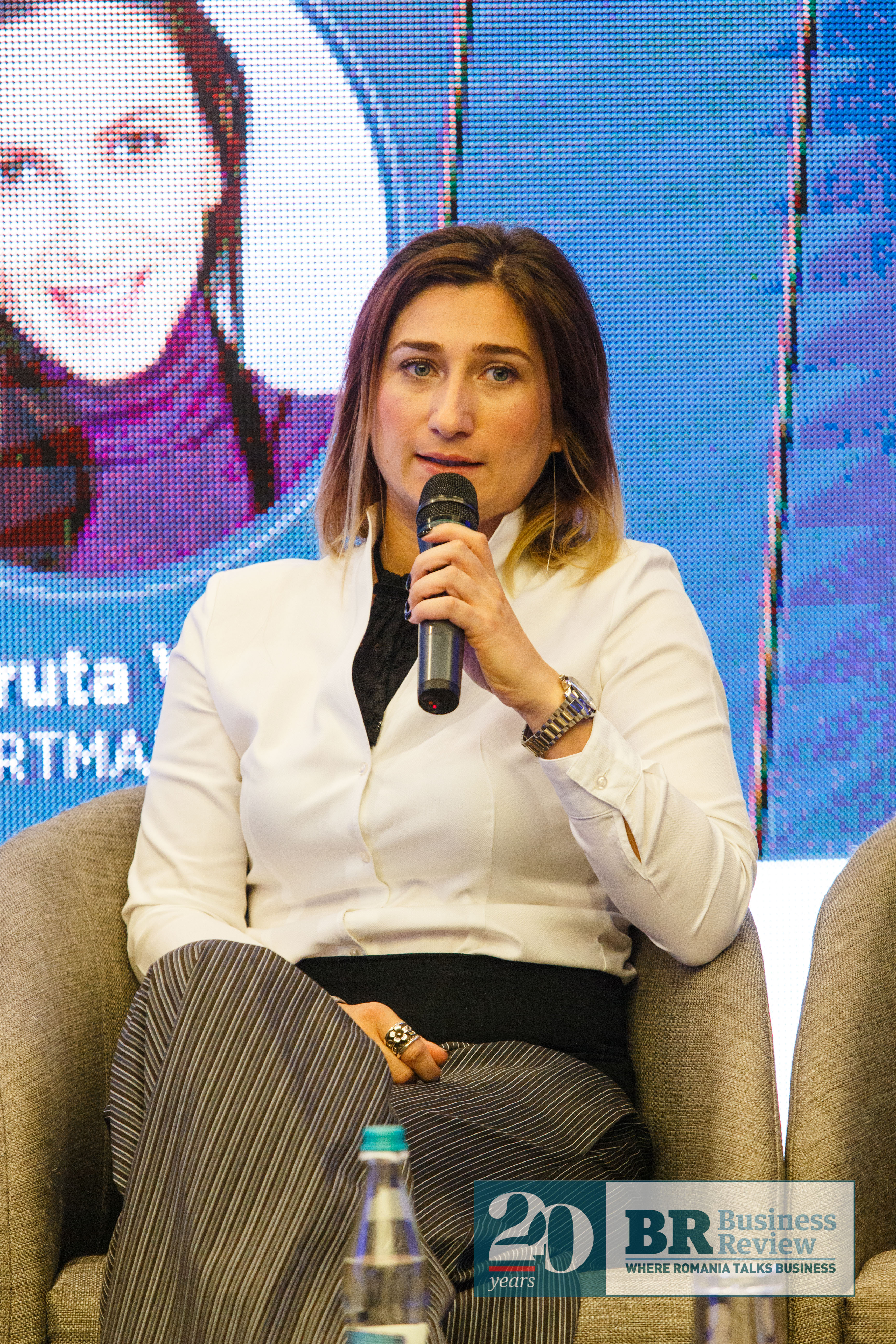
- Packaging waste management is totally defective in Romania and there is a risk of infringement.
- We have the obligation to reach targets, which have not resulted in quite important penalties.
- We have close to 280,000 tons per year of waste packaging , which must be managed. Romania is blocked when it comes to local authorities. They must provide the necessary infrastructure for recycling.
- It is a lack of vision in sustainability.
- The good part is that the producers are aware of what they have to do, they pay annually 60 million euros. But they are stuck at “where I put waste” because they have no place.
- rom 2019 Legislation will oblige mayors to make this collecting infrastructure, we will see what will happen. We will most likely see the first fines the mayors will receive for the absence of garbage collection sites.
Codruta Vulcu – Owner/CEO | Artmania

- We began to make young people responsible for waste at music concerts, to realize the amount of waste they produce every day.
- And we hope they go home from the concert with these ideas so they are interested in collection and recycling.
- We hope next year to do these projects together with local authorities.



:quality(80)/business-review.eu/wp-content/uploads/2024/02/christian-conti.jpg)




:quality(80)/business-review.eu/wp-content/uploads/2024/02/IMG_6951.jpg)

:quality(80)/business-review.eu/wp-content/uploads/2024/04/COVER-1.jpg)



:quality(80)/business-review.eu/wp-content/uploads/2024/04/cover-april.jpg)
:quality(50)/business-review.eu/wp-content/uploads/2024/04/Slide1.png)
:quality(50)/business-review.eu/wp-content/uploads/2024/04/1_Transport.jpg)
:quality(50)/business-review.eu/wp-content/uploads/2024/04/0x0-Supercharger_18-scaled.jpg)